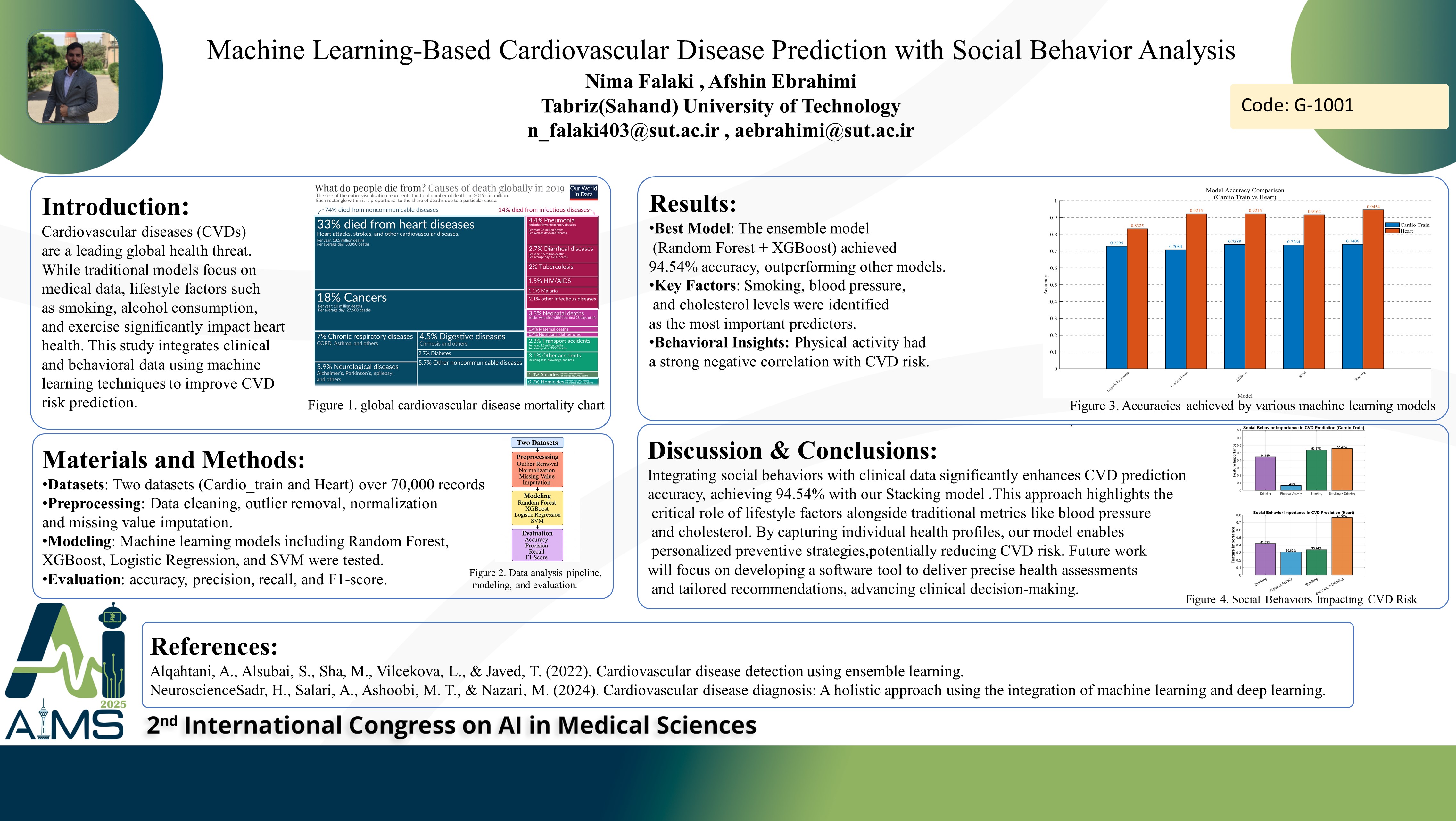پیشبینی بیماریهای قلبی–عروقی مبتنی بر یادگیری ماشین با تحلیل رفتارهای اجتماعی
کد: G-1769
نویسندگان: Nima Falaki * ℗, Afshin Ebrahimi
زمان بندی: زمان بندی نشده!
برچسب: پردازش سیگنال های پزشکی
دانلود: دانلود پوستر
خلاصه مقاله:
خلاصه مقاله
Background and aims: Cardiovascular diseases are among the top causes of mortality worldwide, and therefore, effective predictive systems in clinical decision-making are crucial. Traditional approaches often concentrate on medical factors and overlook lifestyle or behavioral factors that have a high influence on heart health. This study aims to improve cardiovascular disease prediction by combining clinical data with behavioral variables through the use of machine learning techniques. Method: Two open-source datasets were utilized, with over 70,000 patient records with clinical and lifestyle variables. The data was preprocessed via standard procedures like outlier handling, normalization, and missing value replacement. Feature importance was determined with the assistance of a Random Forest algorithm. Various machine learning models were trained and tested, and comprised Random Forest, Extreme Gradient Boosting, Logistic Regression, Support Vector Machines, and K-Nearest Neighbors. The datasets used in this study were divided into training and test subsets based on an 80/20 ratio, while model performance was evaluated using accuracy, precision, recall, and F1-score. Results: The ensemble model using Random Forest and XGBoost yielded the best results with 94.54% accuracy, outperforming all the baseline classifiers. Smoking status, blood pressure, and cholesterol levels were the most potent predictors. Physical activity exhibited a strong negative correlation with the risk of cardiovascular disease, reaffirming its role as a protective factor. Conclusion: Integrating behavioral factors with clinical indicators not only enhances the prediction accuracy of machine learning models but also provides valuable insight into individual health profiles. This approach can assist healthcare providers in analyzing patient test results more effectively and offering personalized strategies aimed at improving overall health and preventing cardiovascular conditions. We plan to develop a software application that analyzes patients’ test results by incorporating both medical records and lifestyle data, to deliver more precise health assessments and personalized preventive recommendations.
کلمات کلیدی
Cardiovascular Disease, Social Behavior, Machine Learning
